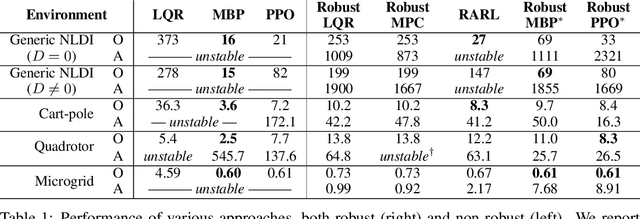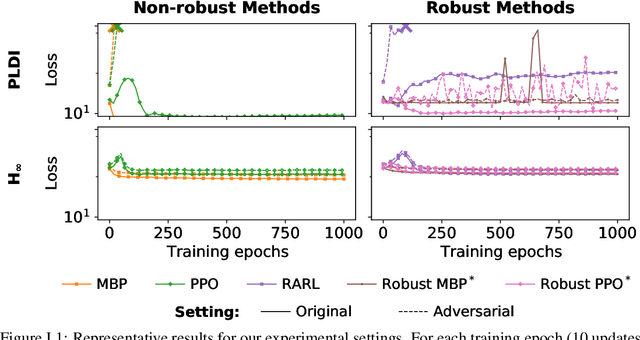Enforcing robust control guarantees within neural network policies
Paper and Code
Nov 16, 2020


When designing controllers for safety-critical systems, practitioners often face a challenging tradeoff between robustness and performance. While robust control methods provide rigorous guarantees on system stability under certain worst-case disturbances, they often result in simple controllers that perform poorly in the average (non-worst) case. In contrast, nonlinear control methods trained using deep learning have achieved state-of-the-art performance on many control tasks, but often lack robustness guarantees. We propose a technique that combines the strengths of these two approaches: a generic nonlinear control policy class, parameterized by neural networks, that nonetheless enforces the same provable robustness criteria as robust control. Specifically, we show that by integrating custom convex-optimization-based projection layers into a nonlinear policy, we can construct a provably robust neural network policy class that outperforms robust control methods in the average (non-adversarial) setting. We demonstrate the power of this approach on several domains, improving in performance over existing robust control methods and in stability over (non-robust) RL methods.
 Add to Chrome
Add to Chrome Add to Firefox
Add to Firefox Add to Edge
Add to Edge